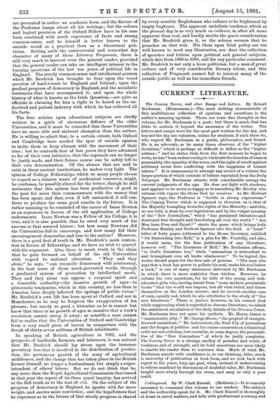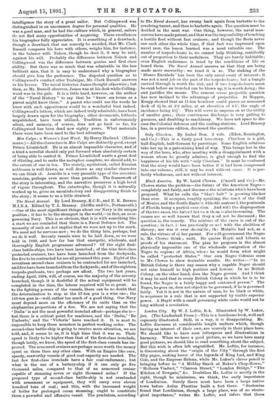Collingwood. By W. Clark Russell. (Methuen.)—It is scarcely necessary to
commend this volume to our readers. The subject and the authorship speak for it. Mr. Clark Russell is thoroughly intelligence the story of a great sailor. But Collingwood was distinguished in an uncommon degree for personal qualities. He was a good man, and he had the culture which, in general, sailors do not find many opportunities of acquiring. These excellences This biographer fully appreciates. It is something of a drawback, though a drawback that can scarcely be avoided, that Mr. Clark -Russell compares his hero with others, weighs him, for instance, in the balance with Nelson, though he does it, it may be said, against his will. Probably the difference between Nelson and Collingwood was the difference between genius and first class ability. But there was so much that was admirable in the less brilliant man, that it is easy to understand why a biographer should give him the preference. The disputed question as to Collingwood's conduct after Trafalgar, Mr. Clark Russell answers in his favour. The naval historian James thought otherwise ; but then, as Mr. Russell observes, James was at his desk while Coiling- wood was in the gale. It is a little hard, however, on the author of the "Naval History" to say that he "knew sea terms as a parrot might know them." A parrot who could use the words he knew with such appositeness would be a wonderful bird indeed. Collingwood's letters, which are indeed truly admirable, have been largely drawn upon for the biography; other documents, hitherto unpublished, have been utilised. Tradition is unfortunately silent, and memory, of course, does not go back so far, for Collingwood has been dead now eighty years. What materials there were have been used to the best advantage.



































 Previous page
Previous page